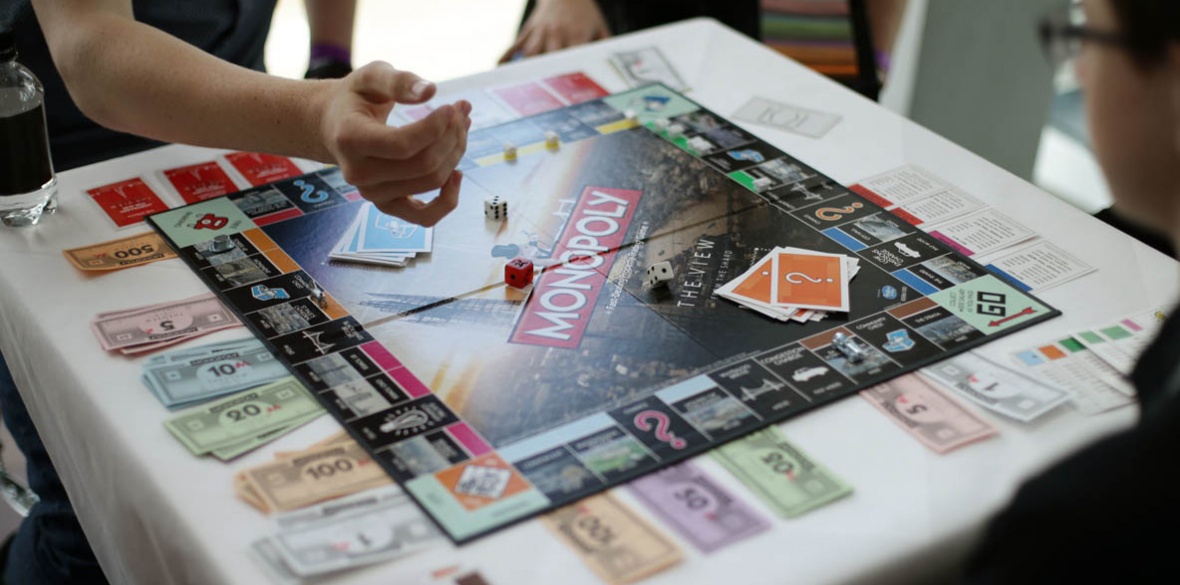This is the last article you can read this month
You can read more article this month
You can read more articles this month
Sorry your limit is up for this month
Reset on:
Please help support the Morning Star by subscribing here
MANY of our Christmas traditions have unusual roots, but perhaps the most surprising are those of the board game Monopoly, which you may find yourself playing over the holidays.
Monopoly is the perfect symbol of capitalism — to the extent that the game was banned in East Germany until after the fall of the Berlin Wall, after which Monopoly championships were held in Berlin.
Hasbro, the brand’s owners, will tell you that Charles Darrow invented the game during the Great Depression, single-handedly creating what he called a “real estate trading game” with property names taken from Atlantic City.
Patented in 1935, Monopoly sold over two million copies within the first two years of its production and would go on to become the world’s fourth-bestselling board game.
The actual origins of the game, however, are quite different from Hasbro’s history.
Around three decades before Darrow patented the game, an actor named Lizzie Magie invented it as a tool for teaching the philosophy of Henry George, that individuals should not own land.
In George’s book Progress and Poverty (1879) he describes ownership of private land as an “erroneous and destructive principle” and argues instead that land should be owned communally with members of society acting collectively as “the general landlord.”
Magie called it “The Landlord’s Game.” It had a continuous track along the sides of a square play mat. The track was divided into blocks marked with the name of a property, its buying price and rent value.
You could even go to jail … Merry Christmas! However, the chance cards were quite different from the ones we see today, as they had relevant quotes, such as: “‘The earth belongs in usufruct to the living’ — Thomas Jefferson.”
As I’m sure you already knew, usufruct means the right to enjoy the use and advantages of another’s property short of the destruction or waste of its substance.
“‘The greatest astonishment of my life was the discovery that the man who does the work is not the man who gets rich’ — Andrew Carnegie” was another quote featured.
Instead of the word “Go!” on Magie’s version the start box had the phrase ‘“Labour Upon Mother Earth Produces Wages.”
The Landlord’s Game was played in various forms and had different names — “Monopoly” and “Auction” were variants and “Finance” and was apparently especially popular in the Quaker communities as well as among professors of economics and university students.
The main premise was the same as present-day Monopoly — players were reduced to financial ruin after being plunged into debt due to escalating rents and there was a single winner, the monopolist.
This is perhaps the main failing of Monopoly as an anti-capitalist tool, it puts you in the position of the capitalist and it’s such good fun.
However, in The Landlord’s Game the players could decide to do something completely different: they could work together as a collective.
Under these alternative rules the players would pay land rent not to a landlord but into a common pot — the rent socialised so that, as Magie would later write, “Prosperity is achieved.”
The game was shared freely in the public domain, as much a part of the cultural commons as chess or draughts, The Landlord’s Game was, in effect, the property of anyone who learned how to play it. Consequently Magie made no money from her invention.
The lesson of Monopoly is that one of the strengths of capitalism is its flexibility, it can absorb and neutralise criticism and turn to its own advantage.
Unlike the feudal system, capitalism is inclusive and can adapt in order to dissipate challenges — and make a profit from doing it. That’s one of capitalism’s great strengths and one of the major problems in trying to combat it.
Any brand that can be commercialised is sure to have a Monopoly board as part of its catalogue — for example, “One Direction Monopoly,” “Pokemon Monopoly,” “Avengers Monopoly” and even “Bass Fishing Monopoly.”
At least one billion people in 111 countries play the game, with an estimated six billion miniature green houses manufactured to date.
There have been 1,144 versions of Monopoly, so if you’re playing the game over Christmas remember its socialist origins.










